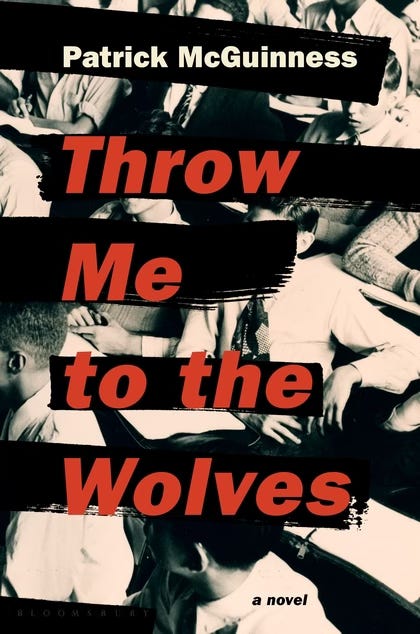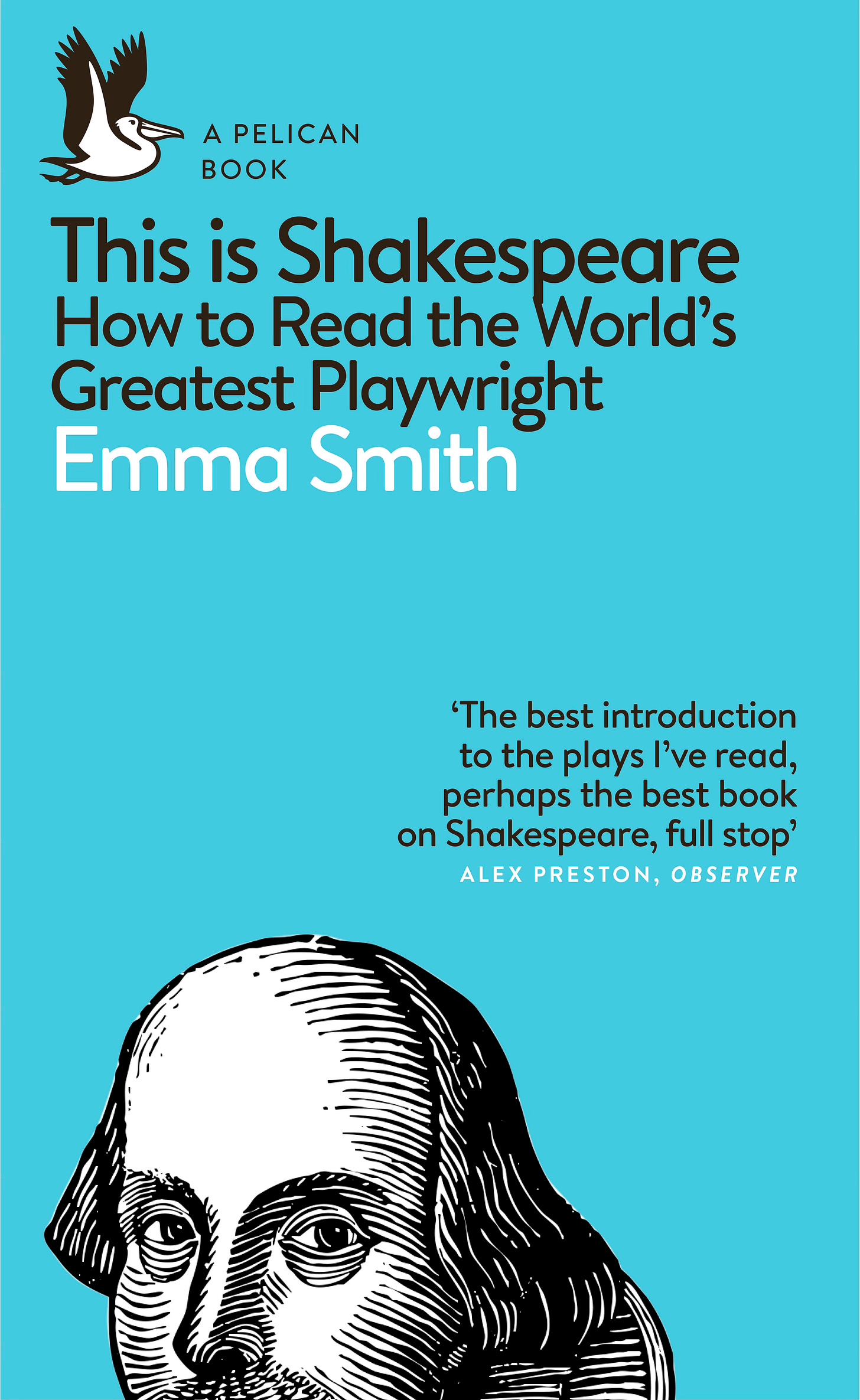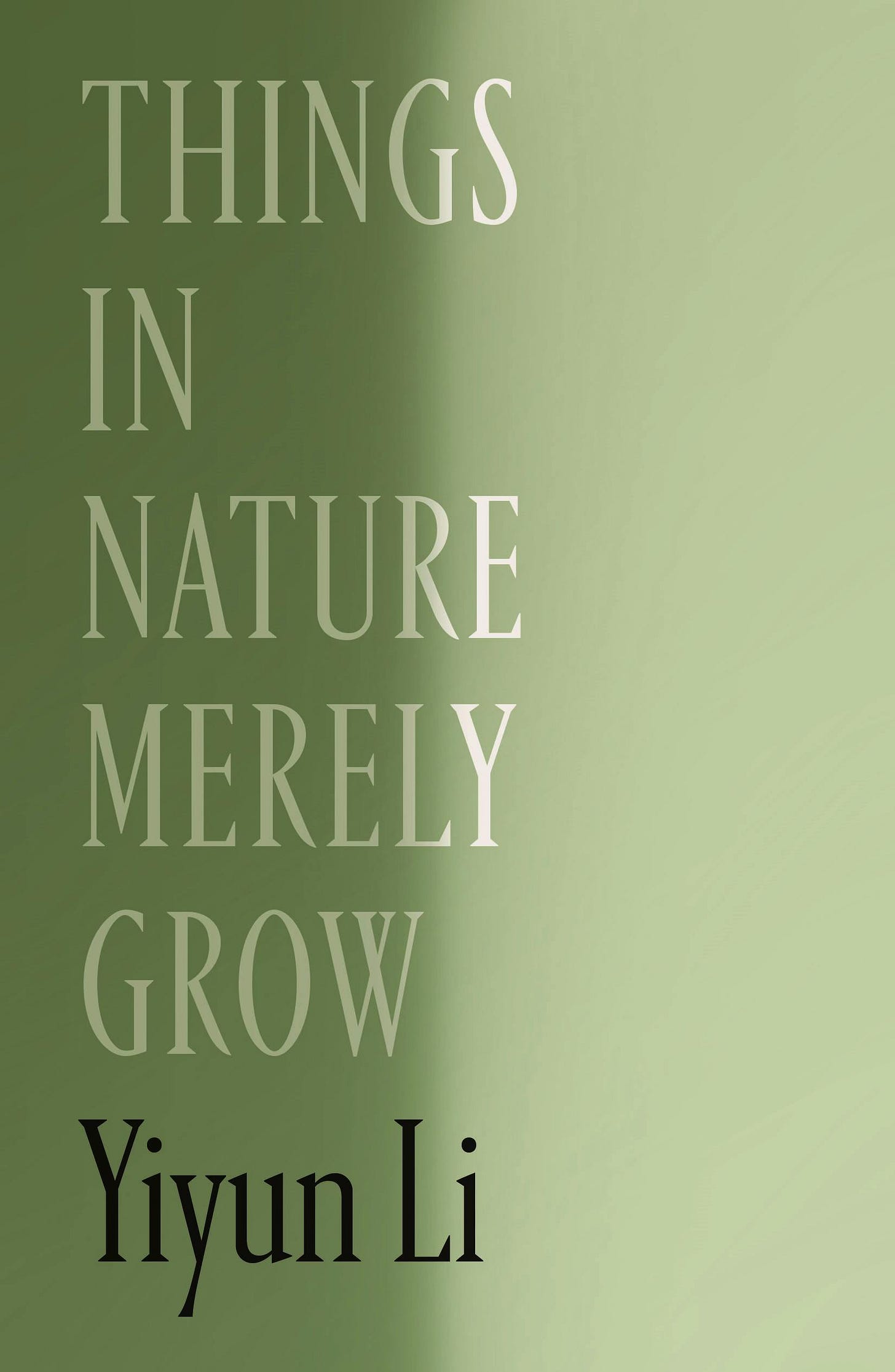188: Flattering beach bunnies
Patrick McGuinness, AI & English, Emma Smith on 'Macbeth', Pádraig Ó Tuama on Denise Duhamel, Rebecca Winthrop with Ezra Klein, Shakespeare in Wisconsin, Yiyun Li, and more.
The end of May! That came quickly. So just two more Fortnightlies in this academic year. Then there’s the summer break, though The Occasional will continue for paid subscribers.
‘Writing is thinking’
In February I shared this moving essay in the LRB by Patrick McGuinness about the former English teacher Christopher Jefferies, who was wrongly accused in 2010 of the murder of his tenant Joanna Yeates, and suffered terribly in a media firestorm as a result.
McGuinness’s 2019 novel fictionalises this story - often lightly I imagine. Jefferies is now called Michael Wolphram, and the main point of view on his story is from his former pupil, now one of two detectives on the case, Alexander, originally called Ander. This isn’t a standard police procedural, but really two parallel investigations: into the murder case, but also into Ander’s childhood memories, which are often traumatic.
McGuinness writes very well. Ander’s police partner Gary is sharply drawn. A couple of other strands (his sister, his niece, a widow) seem unresolved. And, unsurprisingly, the portrait of the boarding school is as negative as so many are.
AI in education
continues to perplex, provoke thought and cause anxiety. My letter in the Irish Times recently (above) was prompted by the ongoing complacency of our educational authorities, who seem to think that the beast can be tamed by ‘guidelines’ put together by a ‘task force’. Since the punctuation confused just which comments were by Daisy Christodoulou, I made the letter clearer here.
There is plenty of excellent writing (by humans) about the subject of interest to educators, and specifically English teachers. Here are three pieces I have noticed recently:
on England’s response to AI is more than relevant to other countries, including Ireland, and so this is the piece from which I quoted in my Irish Times letter:in The Broker Copier: ‘What My Students Had to Say About AI':In short, the growing and undetectable use of generative AI poses a huge threat to the integrity of assessments, and by extension to the integrity of education. In the worst-case scenario, which may already be here, we end up with a kabuki dance where students pretend to write essays and teachers pretend to mark them.
and in on ‘Learning, Fast and Slow: Why AI will not revolutionize education’:Out of all the things I heard and read throughout these discussions, one specific comment left me with jaw agape reading back through the results at the end of the day: “you still have to do your job, and it also will separate you from your students”.
The problem with using technology to revolutionize education is that the idea is always premised on making learning so much easier. At last, no more slogging through System 2! No more being a tortoise, no more huffing and puffing through endless Latin conjugations, Shakespearean soliloquies, and calculus operations!
Emma Smith on Macbeth:
a free British Library CPD session on ‘Macbeth in Context’ online on Wednesday 25th June, 4.00pm.
“Teacher and author Michael Donkor will host the event, and suggest fresh ways of approaching Macbeth with your students, using rich contextual sources from the British Library. Professor Emma Smith will explore ideas of agency and blame in the play, looking at Macbeth, Lady Macbeth and the supernatural. Following the event, delegates will receive a digital resource pack, full of expert articles”.
Some notes on the Macbeth chapter in Emma Smith’s book.
A great opportunity for teachers of Leaving Certificate English. Here’s registration for my own free webinar November 18th on thinking about and revising the play. And don’t miss Aoife O’Driscoll’s on September 24th.
Podcast of the Week
is from
at . I’ve regularly recommended this in the past, but not recently, so here’s a reminder that this is one of the most enjoyable things to listen to for just 15 minutes in the week.This time, it’s Denise Duhamel’s ‘How It Will End’, a poem that is funny and sharp, and makes you consider your own relationships. Full details and transcript.
Rebecca Winthrop
featured alongside Maryanne Wolf in a podcast from the Centre for Humane Technology that I recommended in 186. Now she has talked to Ezra Klein of the NYT (video above; audio below). Klein is obviously very bright and his instincts are surely right, but at times he becomes a little lost on education (learning styles). Winthrop is worth listening to.
Shakespeare in rural Wisconsin
A cheering story about the American Players Theatre in Spring Green, 200 miles from Chicago. It’s wonderful that this been sustained since 1980.
Dress for the weather. Cans of mosquito repellant are set on small tables near the theater for general use. Most audience members take the fifteen-minute scenic, wooded walk up the hill to the theater, but for those who can’t manage the walk, there are shuttle buses. Consider your own strength—I wished I’d gotten a ride when I came to see The Merchant of Venice while six months pregnant. The play was great, but the walk up and down caused contractions. Fortunately, the baby stayed put.
I am reminded a little of another outdoor Shakespeare venue I’ve been to a few times, Tolethorpe in Lincolnshire, home of the Stamford Shakespeare Company.
Teaching and Learning Things:
A repeat of my free webinar on teaching Claire Keegan’s Small Things Like These for the comparative module of the Leaving Certificate, on October 20th. Last year 1400 people attended two sessions. Schools are really taking up this text - I’ve recently had emails from teachers in Australia, Canada, Hong Kong and the USA looking for resources (they’re here).
Bradley Busch of Inner Drive with ‘10 Quotes from Dylan Wiliam on Formative Assessment and the Science of Learning’ including:
3. “No lesson survives first contact”. A well-planned lesson is essential, but it must be flexible. Dylan reminds us that as soon as you start teaching, you encounter real students with real needs, and being able to adapt in the moment is what responsive teaching is all about.
In the Irish Times on the same Saturday as my letter, above, Breda O’Brien wrote a ferocious column on Leaving Certificate reform in Ireland. If you haven’t yet read it, you should:
The nightmare result is a no to reform and a no to industrial action, leaving unions hamstrung. Worse will be a demoralised workforce voting yes to reform because they feel unheard and helpless, aware that both students and Ireland’s educational reputation will suffer.
Et Cetera
A favourite school event, perfectly placed at this stage of the year: Voices of Poetry.
Last time I recommended Yiyun Li’s discussion in the New Yorker of William Trevor’s short story ‘The Piano Tuner’s Wives’. Now comes a profile in The Guardian by Sophie McBain. Li’s new book addresses the unimaginable fact that both her sons took their own lives, aged 16 and 19:
Li has always written in English, and she will not permit her books to be translated into Chinese. She describes this decision as so deeply personal that she resists any political interpretation. She and her husband speak to one another in Mandarin Chinese, but she now thinks and dreams in English and says she retains the advantage of not writing in her mother tongue. “I’m very careful with my words. Every time I put down a word, I think through it and make sure it’s the right word. But when you’re a native speaker you sometimes just use it automatically, right?”
The wonderful Alan Alda profiled by Simon Hattenstone. What a treat M.A.S.H. was in years past (RIP Loretta Swit just yesterday). In years present, Alda’s podcast Clear + Vivid has such riches.
My mother didn’t try to stab my father until I was six, but she must have shown signs of oddness before that.
From WaferThin Books, a selection of excellent short fiction published by Valoncourt Books.
The Irish connection to The Great Gatsby, from Brian Murphy:
As we mark the centenary of The Great Gatsby, Fitzgerald’s Irish roots still quietly shape the author’s themes. The green light, the enduring symbol of Gatsby’s dream, also reflects Fitzgerald’s own journey of aspiration and identity. A century later, the light flickers still, not just as a beacon of desire, but as a symbol of the immigrant experience and the enduring Irish spirit that underpins all of Fitzgerald’s works.










